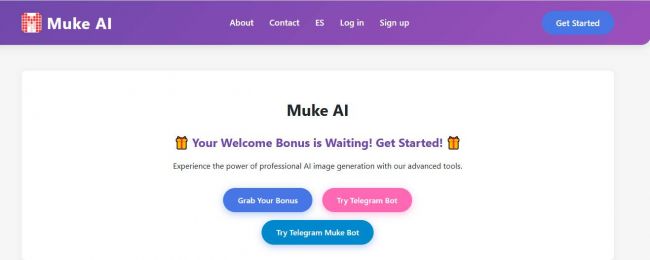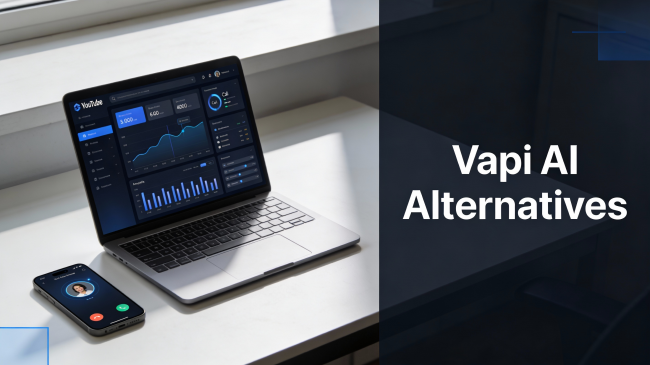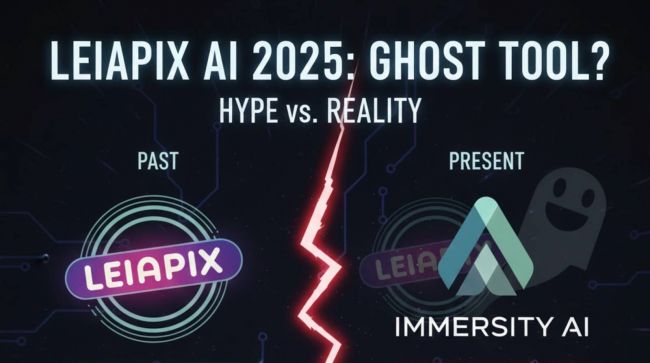On This Page
- Why Are Researchers Moving Away from Google in 2026?
- Meet Liner AI: Not Just Another AI Tool
- Real-World Test: Liner AI vs Google on a Research Query
- The Interface Is the Insight: How Liner Helps You Think
- How Liner AI Chooses Sources: Trust > Popularity
- Build Your Second Brain with Liner Collections
- Scholar Mode: Can It Compete with Google Scholar?
- 5 Habits of Productive Liner AI Users
- What Liner Is Bad At (and Why That Matters)
- Liner AI vs Perplexity vs ChatGPT vs Elicit
- Pricing: What You Get at Each Tier
- What Users Really Think (G2, Reddit, App Stores)
- Liner’s 2026 Roadmap: Where It’s Headed
- Should You Use Liner AI?
- Final Takeaway: A Research Companion, Not Just an Answer Engine
- FAQs: Questions People Are Searching About Liner AI
In 2026, traditional search engines like Google are facing a credibility crisis. Between SEO spam, ads, and AI-generated junk, it’s harder than ever to find factual, source-backed content quickly.
Enter Liner AI — a reading companion, AI summarizer, and citation-first search assistant that claims to change the way we research.
_1754045491.png)
But does it truly deliver?
Why Are Researchers Moving Away from Google in 2026?
Google still dominates global search, but it no longer guarantees truth. AI-generated pages flood results, and reliable academic sources are buried under sponsored content.
That's why tools like Liner AI are gaining traction. Instead of ranking pages by keywords, Liner ranks ideas by credibility, showing users verified information from academic journals, news outlets, and cited articles — right within the answer box.
According to 10Web’s AI tools directory, Liner AI is now among the top-used tools for AI-assisted research, especially for mobile-first users.
Meet Liner AI: Not Just Another AI Tool
Liner AI operates through liner.com and getliner.com, delivering a browser- and app-based AI assistant that overlays your research and summarizes everything you highlight — including PDFs, web pages, and even YouTube videos.
Don’t confuse it with liner.ai, which is an unrelated no-code machine learning platform. The real research tool lives on GetLiner, and it's built around minimalist UI, source-first content, and cross-platform sync.
Real-World Test: Liner AI vs Google on a Research Query
Let’s test both on the question:
“What caused the 2008 financial crisis?”
- Google: Returns Wikipedia, blogs, opinion pieces, and financial sites. No summary, no quick takeaway.
- Liner AI: Provides a 5-sentence summary, links to Investopedia, The Guardian, and the Federal Reserve Bank. Each sentence includes clickable sources.
The difference? Liner AI doesn’t just tell you what happened — it tells you why, and from where.
The Interface Is the Insight: How Liner Helps You Think
Liner’s interface is designed to guide focus, not overwhelm. Across platforms — Chrome extension, Android app (Play Store), iOS (App Store), and Windows desktop (Microsoft Store) — it maintains the same flow:
- Highlight a line, Liner auto-saves it
- Ask a follow-up → get citations
- Add it to your Collections
- Access everything on mobile and desktop
- Use YouTube or PDF summarization to extend research
On Reddit, users in the Notion community have praised Liner’s ability to sync highlights directly into their workflow.
How Liner AI Chooses Sources: Trust > Popularity
Liner doesn’t just pull from random blogs. It ranks sources based on:
- Authority score (news outlets, journals, academic sources)
- Source variety (no single-URL dependency)
- Recency and citation frequency
- Cross-verification using GPT or Claude AI
As confirmed by Futurepedia’s review of Liner AI, the platform’s strongest edge is its refusal to present unverified content — a rare commitment in the AI search space.
Build Your Second Brain with Liner Collections
Instead of just bookmarking, Liner helps you curate:
- Highlights (from web, PDFs, or videos)
- Auto-tagged summaries
- Notes with source attribution
- Exportable lists for Google Docs, Notion, or Obsidian
Everything lives under “Collections”, accessible from any device. This is why power users on ProductHunt describe Liner as “a hybrid of Notion, Perplexity, and Google Scholar.”
Scholar Mode: Can It Compete with Google Scholar?
Liner’s Scholar Mode is a hidden gem for academic users. Unlike Google Scholar, which shows raw papers, Liner provides:
- Summarized abstracts
- Bullet-point takeaways
- Direct links to publisher-hosted content
- A follow-up prompt: “Ask about methodology,” “List opposing studies”
While it lacks citation export to tools like Zotero, for literature scan or exam prep, Liner is faster and more readable.
5 Habits of Productive Liner AI Users
Start with Collections, not bookmarks
- Summarize videos and highlight spoken lines (e.g., lectures)
- Use “Ask Again with New Sources” to see contrasting views
- Group by research question for faster recall
- Export with tags for integration into your writing tools
As noted on SoftwareWorld's review page, users find Liner especially helpful in cross-medium research — shifting from text to video to file-based input seamlessly.
This growing demand for AI-powered productivity across professional domains reflects a broader trend.
For example, in the field of education, MagicSchool AI is becoming the teacher’s equivalent of Liner — automating lesson planning, content generation, and student feedback. Where Liner helps researchers organize thoughts and citations, MagicSchool empowers educators to focus more on teaching than on admin work. Both platforms highlight how AI is evolving from a simple assistant into a trusted domain-specific sidekick.
What Liner Is Bad At (and Why That Matters)
No tool is perfect. Some of Liner’s shortcomings include:
- No in-app citation manager like Mendeley
- Subscription cancellation issues as reported on G2
- Summaries lack depth in highly technical domains (e.g., biomedical)
- No export to .RIS or .BibTeX formats
These aren’t dealbreakers — but for researchers at the PhD or publication level, they’ll matter.
Liner AI vs Perplexity vs ChatGPT vs Elicit
| Tool | Unique Strength | Limitation |
| Liner AI | Highlights + citations + summaries | Paid plans required for files |
| Perplexity | Fast, chat-first answers | Can hallucinate or link poorly |
| ChatGPT | Context-rich long form generation | No sources unless prompted |
| Elicit | Structured paper search | No web/general knowledge access |
If your priority is source-backed summaries + cross-media annotation, Liner AI is unmatched.
Pricing: What You Get at Each Tier
| Plan | Monthly Cost | Key Features |
| Free | $0 | Limited highlights, no uploads, basic chat |
| Essential | $25.99 | File upload, advanced chat, 200 AI credits |
| Professional | $35.99 | Unlimited uploads, multi-agent access, images |
Your subscription works across all platforms — mobile, browser, and desktop.
What Users Really Think (G2, Reddit, App Stores)
- App Store: 4.4★ – “Best reading companion I've used in years.”
- Google Play: 4.3★ – “The highlight function is golden.”
- G2: Complaints around subscription management and summary brevity
- Reddit: Ideal for academic summaries and browser-based research
Liner’s 2026 Roadmap: Where It’s Headed
According to LinkedIn company updates, Liner is focusing on:
- Memory agents for contextual research
- Better desktop UX (dark mode, annotation layers)
- File annotation with collaborative sharing
- Deeper research workflows with cloud sync
This roadmap aligns with their core vision: making research faster, credible, and organized.
Should You Use Liner AI?
Use Liner AI if you are:
- A student summarizing lectures or PDFs
- A researcher needing citation-first summaries
- A writer organizing clips into articles or essays
- A professional scanning briefs, whitepapers, or reports
Don’t use it if you need citation exports, hyper-niche knowledge, or write code-based papers that require mathematical formatting.
Final Takeaway: A Research Companion, Not Just an Answer Engine
Yes — as someone who regularly juggles academic papers, blog research, and YouTube deep-dives, Liner AI has made my workflow smoother. It doesn’t replace Google entirely, but it reduces my need to verify every source manually. I especially rely on it when I'm researching across mediums — PDFs, videos, and web pages — all in one place.
What do I love most? It focuses on citations and not just speed. What do I want improved? Citation export support and a better handling of more technical domains like law and medicine. It’s not a magic wand, but it’s definitely a research productivity booster I’d recommend to anyone who values credibility and structure in their learning or writing process.
FAQs: Questions People Are Searching About Liner AI
Q1. Is Liner AI better than Google for students?
Yes, for summarizing, citing, and organizing study material, Liner outperforms Google’s cluttered results. But Google is still stronger for discovering newer pages or real-time updates.
Q2. Can I use Liner AI offline?
No, Liner AI is cloud-based and requires an internet connection to function.
Q3. Does Liner AI work with Notion?
Yes, it integrates indirectly via export. Highlights and summaries can be copied/exported to Notion manually or through API tools.
Q4. Is Liner AI safe for academic use?
Yes — it cites sources clearly and doesn't hallucinate responses, but for formal publishing, double-check citations manually.
Q5. Does Liner AI support Markdown or Obsidian export?
Yes, you can export to Markdown and import into Obsidian easily using the export function under “Collections”.
Q6. Is there a Chrome extension for Liner AI?
Yes, it’s available on the Chrome Web Store, and it auto-highlights, summarizes, and syncs with your Liner account.
Q7. Can I summarize YouTube videos with Liner AI?
Yes, just paste the link or use the extension while playing the video — it extracts spoken content and provides a concise summary.
Q8. Does Liner AI support team collaboration?
Partially. As of now, it offers shared Collections, but full collaborative annotation and editing are part of their 2026 roadmap.
Q9. Are my uploads private?
Yes, Liner claims files and highlights are private by default. However, you should always verify platform data policies for sensitive research.
Q10. Is Liner AI free for students?
There’s no specific student discount, but the free tier is quite usable for light highlighting and web-based research.
Post Comment
Be the first to post comment!





